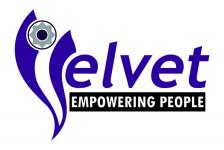POWER PLANT CHEMISTRY TRAINING
Keterangan
•Date: 02 – 05 November 2009
•Time: 08.00 – 16.00 WIB
•Venue: Melia Purosani Hotel - Yogyakarta
•Language : Bahasa Indonesia
•Facilitator : Dr. Ir. Viktor Malau, DEA & Team
Overview:
Reduce Hydrogen Damage. Reduce Boiler Tube Failures. Improve Unit Reability. Minimize Corrosion Deposition. Learn the proper respon when chemical parameters are exceeded. Understand the consequences of operation while boiler and feed water chemistry limits are being exceeded.
The course provides and understanding of the role of chemistry in a power plant and the effect of chemical controls on the operation of the system.
Unit eficiency, reliability, and availability can be adversely affected by inpropere boiler water chemistry. The results of a multi-milion dollar overhaul can be negated during start-up due to inproper boiler water chemistry.
Objectives:
Upon succesfull completion of this course, the participant should be able to:
1. Describe the theory behinfd chemical analysis and control used in the power plant.
2. Discuss the safety requirement to be followed during sampling, analysis, and addition of chemical.
3. Describe the procedures for sampling and analyzing various water sources.
4. Describe the basis for the various chemistry limits imposed for different system in the power plant.
5. Describe the mechanism for the various types of corrosion and how this corrosion is controlled.
Course Outline:
Introduction
Ø Boiler Feedwater Treatment Developments
Ø Treatment of Water
• Impurities
Chemistry Fundamentals
Ø Matter and Energy
• Properties of Matter
• States of Matter
• Elements, Composounds, and Mixtures
• Energy Relationships
Ø Atomic Structure and the Periodic Chart
• Fundamental Particles
• Electron Shells
• Ions
• Valence Electrons and the Octet Rule
Ø Chemical Formulas and Equations
• Chemical Symbols
• Chemical Formulas
• Chemical Equations
Ø Solutions and Solubility
• Temp. And Pressure
• The Dissolving Process
• Binding Effects
• Solutions
Ø Solutions Concentrations
• Molality, Normality
• Preparing Solutions
Ø Solubility
• Saturated Sollutions
• Miscibility
Ø Acids and Bases
Ø Ionization of Water
Ø Neutralization
Ø Electrochemistry
Corrosion
Ø Environmetal Effects
Ø Electrochemical Process
Ø Factors Affecting Corrosion
Ø Metallic Structure
• Crystal Structure
• Grain Boundaries
• Impurities
• Alloys
Ø The Chemistry of Corrosion
• Energy Relationship
• Anodes and Chatodes
Ø Galvanic Series
Ø Electromotive Series
Ø Alkaline and Acidic Solutions
• Chatodic Reactions
• Oxygen Effect
Ø Uniform & Location of Corrosion
Ø Pitting Corrosion
• Pitting Action
• Film Breakdown
• Causes
• Corrective Actions
Ø Stress Corrosion
• Static Stress
• Cracking Mechanism
• Electrochemical Aspects
• Mechanical Aspects
Ø Expolliation
Ø Corrosion Fatigue
Ø Caustic Corrosion
• Causes
• Corrective Action
Ø Hydrogen Damage
• Causes
• Corrective Action
Make Up Water Treatment
Ø Clarification
• Coagulation
• Inorganic Coagulants
• Polyelectrolyte
• Color Control
• Clarifiers
Ø Filtration
• Filter Construction
• Filter Cleaning
Ø Water Softening
• Hardness
• Preciptive Softening
• Softening Reagents
• Equipment
Ø Demineralization
• Theory of Ion Exch.
• Mass Transfer
• Ion Exchange Capacity
Ø Types of Resins
Ø Regeneration
Ø Resin Fouling
• Determine Degree
• Types of Fouling
Ø Reverse Osmosis
• Theory
• Monitoring Perform
• EDR Separation
Boiler Water Treatment
Ø Properties of Water
• Physical
• Chemical
Ø Boiler Water Treatment
• Deposits
• Internal Treatment
Ø Feedwater Treatment
• Deaerator
• Oxygen Scavengers
Ø Contaminants
Control Guidlines
Ø EPRI Guidlines
• Sampling Points
• Action Levels
• Basis for Limits
Ø Boiler Water Analysis
• Start Up Monitoring
• pH Analysis
• Phosphate Analysis
• Chloride Analysis
• Sulfate Analysis
• Silica Analysis
• Alkanality
Ø Feedwater Analysis
• Neutarilizing Amines
• Filming Amines
• Start Up Monotoring
• pH Analysis
• Conductivity
• Silica
• Ammonia
• Morpholine
• FE and CU
Instrumentation
Ø Analyzers
• USF
• Sample Point Selection
Ø Sampling Water and Steam
• Obtaining Sample
• Sample Transport
• Sample Conditioning
Ø On-Line Sample Panel
Ø Conductivity Analyzer
• Theory of Operation
• Calibration & Maintenance
Ø pH Analyzer
• Theory of Operation
• Standardization
Ø Sodium Analyzer
• Theory of Operation
• Calibration & Maintenace
Ø Chloride Analyzer
• Theory of Operation
• Ion Chromatography
Ø Dissolved Oxy. Analyzers
• Theory of Operation
• Calibration
Ø Hydrazine Analyzers
• Theory of Operation
Ø Silica Analyzer
• Theory of Operation
• Maintenance
Course Conclution
Who should attend:
This course is designed for fossil power plant operators and supervisors who are involved in testing feed water and boiler water and making adjustments to chemical pumps based on their analysis.
Facilities:
Lunch & Coffee break, Certificate, Hand out, Training kit, Souvenir, & Documentation.
Term & Conditions
v Time, schedule & venue can be changed anytime you need or training can be conducted anytime, as per your special request
v Payment: by INVOICE or can be cash on first day training.
v Transfer the payment to DWI MARYANY, PT BANK MANDIRI KCP Katamso: A/C No. 137-00-0623325-4 and Fax the slip to 0274 381231 or Email as attachment at dwi.maryany@velvet.web.id
v For Info, please call Andita at (0274 381231) or Email: inggar.andita@velvet.web.id / info.training@velvet.web.id
Masukan ke Produk RekananKenalkan ke teman Anda
Nomor Ponsel:
Nomor Faks:
Alamat:

